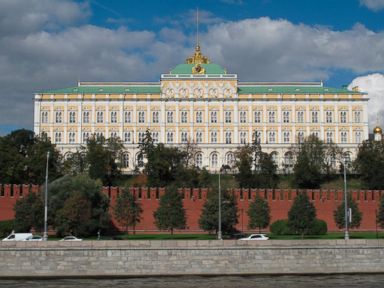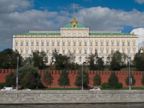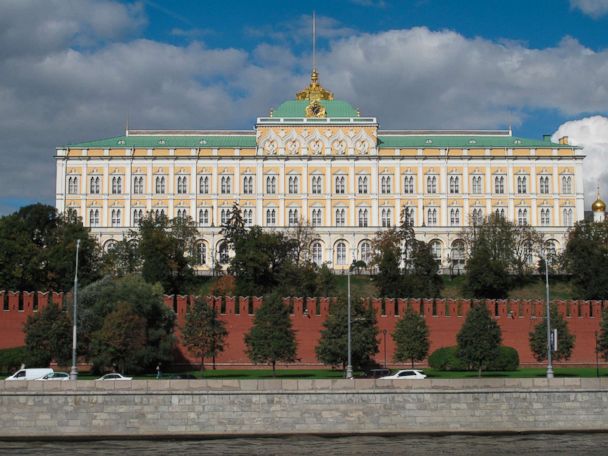






President Donald Trump continues to call for the Justice Department to launch investigations into “corruption” at the FBI, “illegal surveillance” of his presidential campaign, and the “phony” and “corrupt dossier,” which he still insists started the federal probe of contacts between Russian operatives and his associates.
The following is an extensive account of the federal counterintelligence probe, laid out in a detailed timeline.
This timeline is based on publicly-released FBI documents, congressional records and testimony, court filings, and certain media reports confirmed to ABC News by sources with knowledge of the matter. It will be updated as new information becomes available.
Three key takeaways:
— In the months before the 2016 presidential election, the FBI was uncovering efforts by the Russian government to interfere in the election, and the FBI was trying to assess unverified allegations that Trump’s associates were aiding the Russian effort.
— The FBI’s counterintelligence probe was not launched because of the “dossier,” but the “dossier” aided the investigation and offered unconfirmed tips for agents to explore.
— Looking to share the work of a longtime acquaintance, senior Justice Department official Bruce Ohr passed on “dossier”-linked information to the FBI. But the first recorded meeting between Ohr and the FBI came four months after the FBI launched its investigation and a full month after the FBI used previously-obtained information from the “dossier” to support secret surveillance of Trump campaign adviser Carter Page.
EARLY 2013: Carter Page, who years later would become an unpaid adviser to Trump’s campaign, shares information and research with a Russian national whom the FBI later accuses of being a Kremlin spy. According to the FBI, the spy is secretly recorded in April 2013 talking with another accused spy about efforts to “recruit” Page “as an intelligence source.” (Page cooperated with the investigation. He has since said his communications were innocent and has denied relaying any sensitive or private information to the accused spy.)
JUNE 2015: Donald Trump announces his candidacy for president.
SEPTEMBER 2015: Looking to boost one of the other Republicans running for the GOP nomination, the right-leaning Washington Free Beacon retains the Washington-based firm Fusion GPS to conduct opposition research on Trump.
JANUARY 2016: Former British spy Christopher Steele sends a “happy new year” message to someone he’s known for some time, Bruce Ohr, the head of the Justice Department’s Organized Crime Drug Enforcement Task Force. Steele also mentions their mutual interest in a Russian oligarch they previously followed together and who may be visiting the United States soon. In his position at the Justice Department, Ohr not only coordinates the department’s efforts to crack down on drug trafficking and foreign cartels, but he also serves as a top official inside the deputy attorney general’s office.
FEBRUARY 2016: Steele and Ohr remain in contact, without Ohr’s bosses at the Justice Department knowing. They continue to discuss the Russian oligarch’s visit to the United States. Meanwhile, Steele has been working for the FBI as a confidential informant, and the FBI advises him of his obligations as an informant, including his responsibility to keep his relationship with the FBI secret. He is working on undisclosed matters. (In documents since publicly released, the FBI says information previously provided by Steele, and unrelated to Trump or Russian election meddling, had been corroborated and used to prosecute cases. But the documents do not offer any more details about what was corroborated or used.)
MARCH 2016: The FBI interviews Carter Page, who has now joined the Trump campaign as a volunteer, about his contacts in Russia.
MARCH 2016: Russian hackers launch an operation to break into computer systems associated with the DNC and email accounts of Clinton campaign staff, including campaign chairman John Podesta.
AROUND APRIL 2016: The Washington Free Beacon ends its research contract with Fusion GPS when it’s clear Trump is going to become the nominee.
MAY 2016: The DNC realizes it has been hacked and quietly hires a security company to investigate.
LATE MAY 2016: Acting on behalf of the DNC, the law firm Perkins Coie hires Fusion GPS to conduct research on Trump. Having known Steele for nearly seven years, Fusion GPS contracts with Steele to conduct the research. The head of Fusion GPS, Glenn Simpson, has also known Steele’s contact at the Justice Department, Ohr, for several years. Simpson hires Ohr’s wife, a Russian linguist named Nellie, to help with the research and analysis.
JUNE 3, 2016: British publicist and Trump associate Rob Goldstone emails Donald Trump Jr., saying prominent Russians “offered to provide the Trump campaign with some official documents and information that would incriminate Hillary.” Goldstone says it is “very high level” and “part of Russia and its government’s support for Mr. Trump.”
JUNE 7, 2016: Goldstone emails Trump Jr. again, looking to set up a meeting between Trump Jr. and a “Russian government attorney.” Two days later, Trump Jr. and the attorney meet in Trump Tower, along with Trump’s son-in-law Jared Kushner and then-campaign chairman Paul Manafort.
JUNE 14, 2016: News outlets widely report that Russian hackers working on behalf of Russian intelligence services have infiltrated the DNC and accessed a trove of emails.
JUNE 20, 2016: Steele compiles a report concluding the Kremlin had “cultivat[ed]” and “compromised” Trump, and it was “feeding Trump and his team valuable intelligence” on Hillary Clinton and others.
JULY 1, 2016: Steele writes Ohr an email, saying he wants to “informally” discuss something about “our favourite business tycoon!” (It’s unclear whether Steele was referring to Trump or the Russian oligarch they have discussed previously.)
EARLY JULY 2016: Described by Simpson as worried that what he was finding could have national security implications, Steele contacts his handler at the FBI. Neither Steele nor Fusion GPS tells the DNC or law firm that Steele is reaching out to the FBI.
JULY 2016: An Australian diplomat alerts the FBI about Trump campaign aide George Papadopoulos, who claimed to have been told that the Russian government obtained “dirt” on Hillary Clinton.
MID-JULY 2016: Senior State Department official Victoria Nuland is shown portions of Steele’s reports. (It’s unclear who shows her the reports.)
JULY 19, 2016: Steele compiles a report for Fusion GPS saying “Trump advisor Carter Page [held] secret meetings in Moscow” with two associates of Vladimir Putin. In one of those meetings, Page was allegedly told the Kremlin might give the Trump campaign “a dossier of ‘kompromat’” — a compilation of compromising information — about Hillary Clinton. (Page has since publicly denied this and described Steele’s information as “lies.”)
LATE JULY 2016: Steele compiles another report saying he had found “further evidence of extensive conspiracy between Trump’s campaign team and [the] Kremlin.” The report says the alleged “cooperation” was “managed on the Trump side by the Republican candidate’s campaign chairman, Paul Manafort, who was using foreign policy adviser, Carter Page, and others as intermediaries.” The report also alleges that a “Trump associate admits Kremlin behind recent appearance of DNC e-mails on WikiLeaks.” (Manafort has since denied any wrongdoing, and Page has since denied working for the Russian government.)
JULY 2016: Carter Page, then an adviser to Trump’s campaign, travels to Moscow to give the commencement speech at the New Economic School there.
JULY 21, 2016: Strzok sends a text message to an FBI attorney, calling Trump “a disaster” and wondering “how destabilizing his Presidency would be.” This message comes after Strzok calls Trump “an idiot” in previous text messages to the FBI attorney.
JULY 22, 2016: WikiLeaks publishes tens of thousands of emails stolen from the DNC.
JULY 30, 2016: Steele, Ohr and Ohr’s wife, Nellie, meet for breakfast in Washington. After the breakfast, Steele emails Ohr, saying, “Glenn [Simpson] is happy to speak to you on this if it would help.”
AROUND JULY 31, 2016: The FBI opens its counterintelligence investigation. Veteran agent Peter Strzok, the Section Chief of FBI’s Counterintelligence Division, is assigned to lead the probe.
EARLY AUGUST 2016: Steele compiles at least two reports on “growing backlash” within high-level Russian ranks over whether the DNC hack went too far, and on “evolving Russian tactics in pro-Trump, anti-Clinton operation.” One report briefly mentions Carter Page, alleging the Kremlin “indirectly” paid for him and several other Americans to travel recently to Moscow. (Page has since denied any wrongdoing.)
AUGUST 8, 2016: The FBI attorney texts Strzok asking, “[Trump’s] not ever going to become president, right? Right?!” Strzok responds: “No. No he’s not. We’ll stop it.”
AUGUST 19, 2016: Paul Manafort resigns as Trump’s campaign chairman. Three days later, Steele compiles a report on Manafort’s “demise” and what he describes as Putin’s concern that alleged “kick-backs” to Manafort were not properly hidden.
AUGUST 22, 2016: Simpson emails Ohr, asking Ohr to “ring.” They make contact, but it’s still unclear what Simpson wanted to discuss.
AUGUST TO EARLY SEPTEMBER 2016: A former, informal Trump campaign adviser, Roger Stone, communicates via Twitter with hackers about the documents stolen from the DNC. It’s unclear whether he knows they are Russian. On August 21, 2016, he tweets about Clinton campaign chairman John Podesta, saying, “it will soon [be] the Podesta’s time in the barrel.”
AS EARLY AS MID-SEPTEMBER 2016: Fusion GPS directs Steele to share his findings with members of the media.
SEPTEMBER 2016: Steele tells Ohr he is “desperate that Donald Trump not get elected” and is “passionate about [Trump] not being president,” as Ohr later recalls in notes.
SEPT. 14, 2016: Steele compiles two reports discussing Putin’s overseas connections and “fallout from media exposure of Moscow’s interference in the U.S. presidential campaign.” The report does not mention or discuss any Trump campaign associates.
MID-SEPTEMBER 2016: Strzok, who has been promoted to Deputy Assistant Director of the FBI’s Espionage Section, becomes aware of Steele’s reports and their allegations. (This timing is according to his later testimony to Congress.)
SEPT. 21, 2016: Steele emails Ohr, saying he is “keen to meet up.” They have breakfast in Washington two days later.
SEPT. 23, 2016: Media reports say U.S. authorities are investigating Carter Page and whether he may be tied to Russian efforts to influence the upcoming presidential election. Without mentioning Steele or his reports, at least one article says authorities have obtained intelligence reports alleging that when Page was in Moscow in July 2016, he met with two Russian officials. Page denies ever working for the Russian government.
SEPT. 25, 2016: Carter Page sends a letter to FBI Director James Comey, referencing the allegations in media reports two days earlier and denying them.
LATE SEPTEMBER 2016: Carter Page leaves the Trump campaign.
OCT. 7, 2016: WikiLeaks releases emails stolen by Russian hackers from the personal email account of John Podesta, Clinton’s campaign chairman.
OCT. 7, 2016: DHS and the Director of National Intelligence, James Clapper, issue a public statement saying, “The U.S. Intelligence Community is confident that the Russia Government directed” the DNC hack.
OCTOBER 2016: Steele goes to the State Department to brief officials there on his reports. (Nuland is not present.)
OCT. 12, 2016: Steele compiles a report saying “buyer’s remorse” was setting in within Russia over the operation to support Trump. The report does not mention or discuss any Trump campaign associates.
OCT. 18, 2016: Steele compiles a report saying a source had “confirmed [a Putin ally’s] secret meeting in Moscow with Carter Page in July.” The report says that during the meeting, Page expressed interest in a deal: in exchange for “stake” in an international business, Trump would lift sanctions on Russia.
OCT. 18, 2016: Steele emails Ohr in the early morning, saying he has “something quite urgent” to discuss. They talk over Skype.
OCT. 19 AND OCT. 20, 2016: Steele compiles two reports alleging Trump’s longtime personal attorney, Michael Cohen, met with Kremlin officials months earlier in Prague. The reports say the meeting took place in August and was intended to limit the damage from the exposure of “Trump foreign policy advisor Carter Page’s secret meetings in Moscow with senior [Russian] regime figures in July 2016.” (Cohen has denied the reports.)
LATE OCTOBER 2016: Steele continues to share his findings with the FBI.
OCTOBER 21, 2016: The FBI files an application with the Foreign Intelligence Surveillance Court, looking for authority to secretly monitor Carter Page’s communications. The application mentions Papadopoulos, discusses Russian efforts to recruit Page in 2013, details Steele’s information about Page, cites news reports about Page and other Trump campaign staffers’ sympathetic tone toward Russia, and lays out 28 pages’ worth of statements that are still classified. The application says: “the FBI believes that the Russian government’s efforts are being coordinated with Page and perhaps other individuals associated with [Trump’s] campaign.” The application also notes that Steele and Fusion GPS were “likely looking for information that could be used to discredit” Trump. Senior FBI and Justice Department officials, including Deputy Attorney General Sally Yates, sign off on the application. A judge nominated to the federal bench by George W. Bush, Rosemary Collyer, approves the surveillance. (Page has since claimed “falsehoods from the dodgy dossier … started this whole thing against me.”)
OCT. 28, 2016: FBI Director James Comey sends a letter to Congress, saying the FBI is reopening the Hillary Clinton email probe.
ON OR SHORTLY AFTER OCT. 28, 2016: Upset over how Comey’s letter might impact the upcoming election, Steele shares his reports with a reporter at Mother Jones magazine. Mother Jones then contacts an FBI spokeswoman for comment and publishes a story on Oct. 31, 2016. Upon learning of Steele’s contact with a reporter and the disclosure of Steele’s relationship with the FBI, the FBI promptly suspends its relationship with Steele.
NOV. 8, 2016: Election Day. Trump is elected president.
EARLY NOVEMBER 2016: Steele stops working for Fusion GPS.
NOV. 21/22, 2016: Ohr speaks with officials at the FBI. According to information since provided by the Senate Judiciary Committee, this is the first known contact between Ohr and the FBI about Steele’s information. (Strzok later tells Congress that he and Ohr spoke as many as five times in late 2016 and early 2017. Ohr does not give Strzok any documents, according to Strzok.)
AFTER NOV. 24, 2016: Steele and Simpson of Fusion GPS are concerned that no one “at a high level of government was aware of the information that Chris had gathered and provided to the FBI,” as Simpson later puts it to House investigators. So Steele suggests that Simpson of Fusion GPS reconnect with Ohr.
DEC. 5, 2016: Ohr speaks with someone at the FBI. According to top Republicans on the Senate Judiciary Committee, this conversation covers Ohr’s contacts with Steele.
DECEMBER 2016: Throughout this month, Simpson of Fusion GPS is in repeated contact with Ohr. (It’s still unclear what they discussed.)
DEC. 9, 2016: Sen. John McCain, R-Ariz., gives copies of Steele’s reports that he received to FBI Director James Comey.
DEC. 12, 2016: Ohr speaks with someone at the FBI. According to top Republicans on the Senate Judiciary Committee, this conversation covers Ohr’s contacts with Steele. A “302” report — the standard report used to summarize notes from an interview — is produced by the FBI. The report recounts information from this day’s meeting and the two previous FBI meetings with Ohr. It the first of several more “302” reports to be filed regarding Ohr.
DEC. 13, 2016: Steele compiles a report laying out “further details of [a] secret dialogue between Trump campaign team, Kremlin and associated hackers in Prague.”
DEC. 20, 2016: Ohr speaks with someone at the FBI. According to top Republicans on the Senate Judiciary Committee, this conversation covers Ohr’s contacts with Steele. Another “302” report is produced by the FBI.
DEC. 29, 2016: Trump adviser Michael Flynn speaks with Russian ambassador Sergei Kislyak about the sanctions against Russia announced by the Obama administration the day before. Flynn discusses the conversation with other transition members and asks them what he should tell Kislyak about the sanctions. Based on what his fellow transition members tell him, Flynn then urges Kislyak to make sure the Russian government doesn’t escalate the situation. (Flynn later admits to all of this in federal court.)
JAN. 6, 2017: Inside Trump Tower in New York, senior U.S. intelligence officials give Trump a classified briefing on what the U.S. intelligence community has unanimously concluded about Russian efforts to meddle in the election. In a one-on-one meeting after that briefing, Comey tells Trump about the unverified allegations being made against him in Steele’s reports.
JAN. 9, 2017: Buzzfeed publishes copies of Steele’s reports, marking the first time the documents have been shared publicly.
JANUARY 2017 (BEFORE JAN. 20): The FBI files an application with the Foreign Intelligence Surveillance Court to continue monitoring Carter Page’s communications. Even though the FBI’s relationship with Steele has been suspended, the FBI says in its application that his latest information is still deemed “reliable” as his previous reporting “has been corroborated and used in criminal proceedings.” A federal judge nominated to the federal bench by George W. Bush, Michael Mosman, approves the continued surveillance.
JAN. 23, 2017: Ohr speaks with someone at the FBI. According to top Republicans on the Senate Judiciary Committee, this conversation covers Ohr’s contacts with Steele. A “302” report is produced by the FBI.
JAN. 24, 2017: The FBI interviews Flynn, who has become Trump’s national security adviser.
JAN. 25, 2017: Ohr speaks with someone at the FBI. According to top Republicans on the Senate Judiciary Committee, this conversation covers Ohr’s contacts with Steele. Another “302” report is produced by the FBI.
JAN. 27, 2017: Ohr speaks with someone at the FBI. According to top Republicans on the Senate Judiciary Committee, this conversation covers Ohr’s contacts with Steele. Another “302” report is produced by the FBI.
JAN. 27, 2017: The FBI interviews Papadopoulos in Chicago.
JAN. 27, 2017: Trump and Comey meet for a private dinner at the White House. According to Comey, Trump praises “loyalty” and tells Comey that the FBI might have to investigate the allegations being made by Steele’s reports, to prove they are false. Comey advises against that. (Trump disputes Comey’s account.)
FEB. 6, 2017: Ohr speaks with someone at the FBI. According to top Republicans on the Senate Judiciary Committee, this conversation covers Ohr’s contacts with Steele. Another “302” report is produced by the FBI.
FEB. 14, 2017: Ohr speaks with someone at the FBI. According to top Republicans on the Senate Judiciary Committee, this conversation covers Ohr’s contacts with Steele. Another “302” report is produced by the FBI.
FEB. 14, 2017: Speaking one-on-one in the Oval Office, Trump brings up Flynn to Comey. “I hope you can let this go,” Trump says of the Flynn case, according to Comey.
MARCH 2, 2017: Attorney General Jeff Sessions, who served as a top national security adviser to Trump’s presidential campaign, recuses himself from any campaign-related investigations.
APRIL 2017: Repeating the same information that was included in previous applications, the FBI submits another application to the Foreign Intelligence Surveillance Court to continue monitoring Carter Page’s communications. A federal judge nominated to the federal bench by then-President George H. W. Bush, Anne Conway, approves the continued surveillance.
APRIL 26, 2017: Rod Rosenstein is sworn in as deputy attorney general, giving him oversight of the Russia probe in the wake of Sessions’ recusal.
MAY 8, 2017: Ohr speaks with someone at the FBI. According to top Republicans on the Senate Judiciary Committee, this conversation covers Ohr’s contacts with Steele. Another “302” report is produced by the FBI. Ohr still does not tell his bosses in the Justice Department what he is doing related to the Russia matter.
MAY 9, 2017: Comey is fired as FBI director.
MAY 12, 2017: Ohr speaks with someone at the FBI. According to top Republicans on the Senate Judiciary Committee, this conversation covers Ohr’s contacts with Steele. A “302” report is produced by the FBI.
MAY 15, 2017: Ohr speaks with someone at the FBI. According to top Republicans on the Senate Judiciary Committee, this conversation covers Ohr’s contacts with Steele. A “302” report is produced by the FBI.
MAY 17, 2017: Rosenstein appoints Robert Mueller as special counsel. Among other things, Mueller is directed to investigate “any links and/or coordination between the Russian government and individuals associated with” Trump’s presidential campaign.
MAY 18, 2017: Strzok and the FBI attorney privately discuss over text message whether Strzok should join Mueller’s team. Strzok says “the odds are nothing” that Mueller’s investigation leads to anything significant, saying, “my gut sense and concern [is] there’s no big there there.”
JUNE 2017: Strzok joins Mueller’s team.
JUNE 2017: Repeating the same information that was included in previous applications, the FBI submits another application to the Foreign Intelligence Surveillance Court to continue monitoring Carter Page’s communications. Among other senior FBI and Justice Department officials, Rosenstein – nominated by Trump to be deputy attorney general – signs off on the applications. A federal judge nominated to the federal bench by then-President Ronald Reagan, Raymond Dearie, approves continued surveillance for 90 more days.
JULY 27, 2017: Papadopoulos is secretly arrested for lying to investigators about his foreign contacts. He later pleads guilty.
JULY 28, 2017: Strzok is removed from Mueller’s team after the special counsel is told about Strzok’s anti-Trump text messages.
LATE 2017: Despite Ohr and Steele working together for so long, Rosenstein’s office first learns that Ohr has been in contact with Steele, and Ohr is transferred to a different office.
OCT. 5, 2017: Trump’s former campaign adviser, Papadopoulos, pleads guilty to lying to the FBI about his contacts with foreign nationals tied to the Russian government.
DEC. 1, 2017: Trump’s former national security adviser, Flynn, pleads guilty to lying to investigators about his contacts with Russians.
FEB. 16, 2018: Mueller indicts 13 Russian nationals and three Russian companies for exploiting social media to spread “fake news,” promote discord in the United States, and engage in what they called “information warfare.”
JUNE 13, 2018: Mueller indicts 12 Russian intelligence officers for hacking Democratic targets, including the DNC, and then releasing stolen information online.
JULY 12, 2018: Strzok testifies before a House panel. He testifies under oath that “at no time” did his personal beliefs impact the actions he took. “You don’t have to take my word for it. At every step, at every investigative decision, there were multiple layers of people above me” and “below me” vetting the decisions. He said any suggestion that politics played a role in the Russia investigation “deeply corrodes what the FBI is in Americans society, the effectiveness of their missions, and it is deeply destructive.”
AUGUST 2018: A federal jury in Virginia convicts Paul Manafort on eight charges tied to years of tax evasion and financial fraud unrelated to his work on the campaign.
